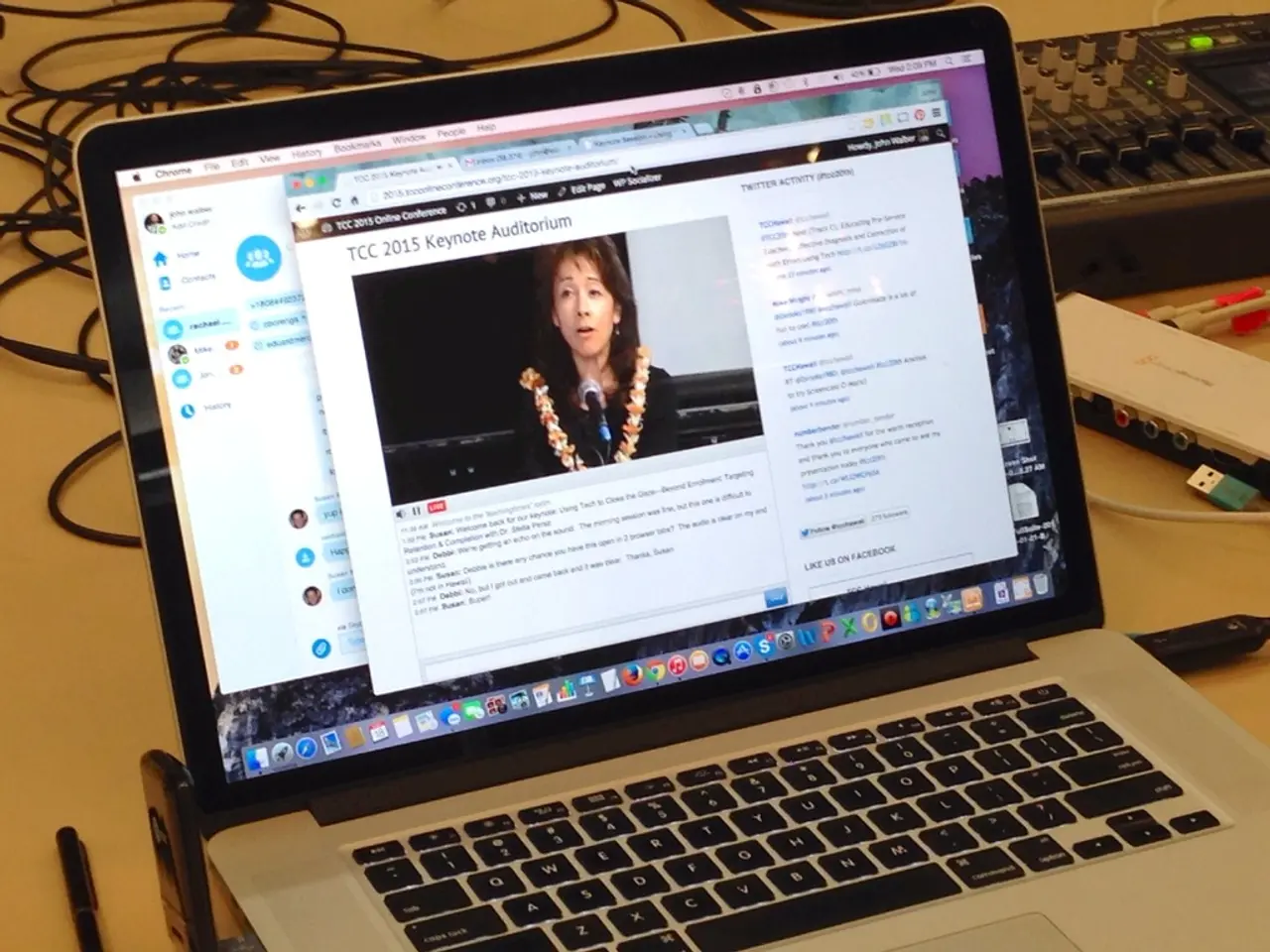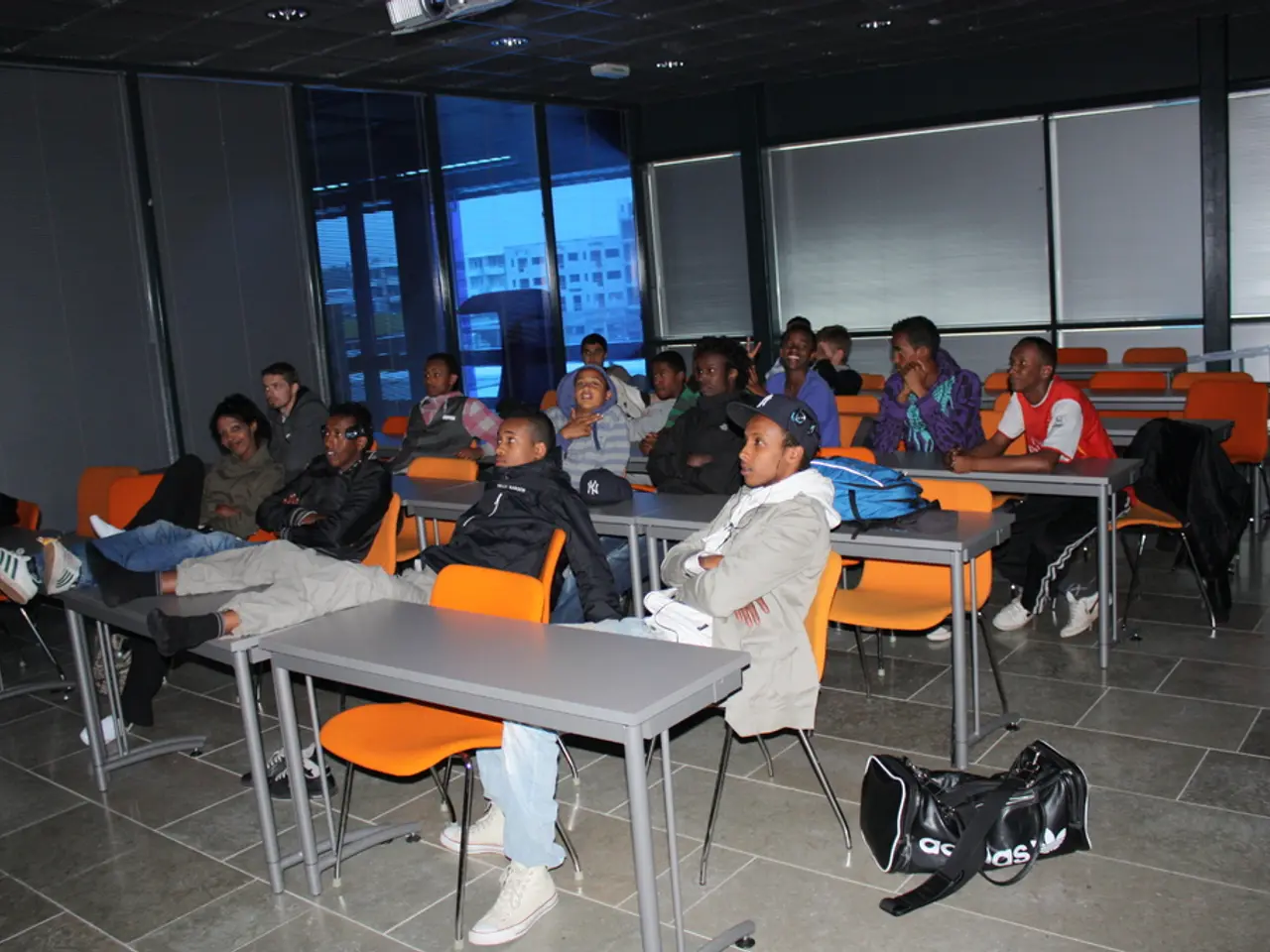Boosting Your Productivity by a Factor of Two
In today's fast-paced world, productivity is key to achieving success. However, many of us find ourselves overwhelmed, saying "I'm busy" or "I don't have time for that." This article aims to help you reclaim your time and increase your productivity.
Setting the right kind of goals is crucial for productivity. After all, actions should only be productive if they're producing something. Procrastination, on the other hand, is a habit that grows stronger with each victory and causes tasks to take up more time. To combat this, we recommend setting clear time limits for tasks using methods like time blocking or timeboxing.
Time blocking involves planning your day into fixed blocks of time dedicated to specific tasks, estimating how long each will take, and including buffer periods for unexpected delays. This keeps you focused and prevents tasks from dragging on unnecessarily.
Prioritizing tasks is another essential strategy. Use prioritization frameworks like the Eisenhower Matrix (urgent/important matrix) or the ABCDE method (label tasks by priority) to focus on high-impact work first. Techniques like "eat the frog" help by tackling the most challenging tasks early when energy is highest.
Perfectionism as a lifestyle has psychological, social, and productive drawbacks. Aim for progress and completion rather than perfect outcomes. Recognize that perfectionism can lead to unnecessary delays and time waste. Using time limits and focusing on task completion within those limits helps prevent perfectionist tendencies from slowing productivity.
Planning your day or week ahead and scheduling tasks realistically to avoid decision fatigue and multitasking inefficiencies is also important. Applying techniques like the Pomodoro method (25-minute focused work sessions with breaks) can help maintain concentration and manage fatigue. Using quick decision rules like the 2-minute rule (if a task takes less than two minutes, do it immediately) can also prevent buildup of small pending tasks.
In essence, combining time limits, effective prioritization, and a pragmatic approach to task quality fosters higher productivity by keeping your workflow structured and focused on meaningful outcomes. Remember, life is like a bubble-popping game; tasks should be completed before they reach a certain size.
Big projects are unlikely to ever be perfect enough, and waiting for perfection can prevent goal achievement. The statement, "You don't need more storage; you need less clutter," is also applicable to time management, suggesting that reducing unnecessary activities can increase productivity. James Clear's advice, "Just get your reps in," encourages the repetition of tasks to build habits and increase productivity.
The power of B-work is emphasized, suggesting that settling for good enough can lead to big results. The goal of this article is to help you achieve more free time. Hebb's Law states that consistent actions strengthen neural connections and develop habits, so make productivity a habit!
[1] Newport, Cal. Deep Work: Rules for Focused Success in a Distracted World. Grand Central Publishing, 2016. [2] Clear, James. Atomic Habits: An Easy & Proven Way to Build Good Habits & Break Bad Ones. Penguin, 2018. [3] Duhigg, Charles. The Power of Habit: Why We Do What We Do in Life and Business. Random House, 2012. [4] Covey, Stephen R. The 7 Habits of Highly Effective People: Powerful Lessons in Personal Change. Simon & Schuster, 1989. [5] Goldsmith, Marshall, and Mark Reiter. What the Dog Saw and Other Adventures. Pantheon Books, 2008.
- Aim for progress and completion rather than perfect outcomes to foster higher productivity and prevent unnecessary delays caused by perfectionism.
- Settling for 'good enough' in tasks can lead to big results, a concept known as the power of B-work.
- Setting productivity as a habit, rather than seeking more storage, can help in reducing unnecessary activities and increasing productivity.
- To reclaim time and increase productivity, it's essential to apply techniques like time blocking, prioritization frameworks, and quick decision rules, while reading books on education-and-self-development such as Deep Work, Atomic Habits, The Power of Habit, The 7 Habits of Highly Effective People, and What the Dog Saw can offer valuable insights on personal-growth and productivity.




